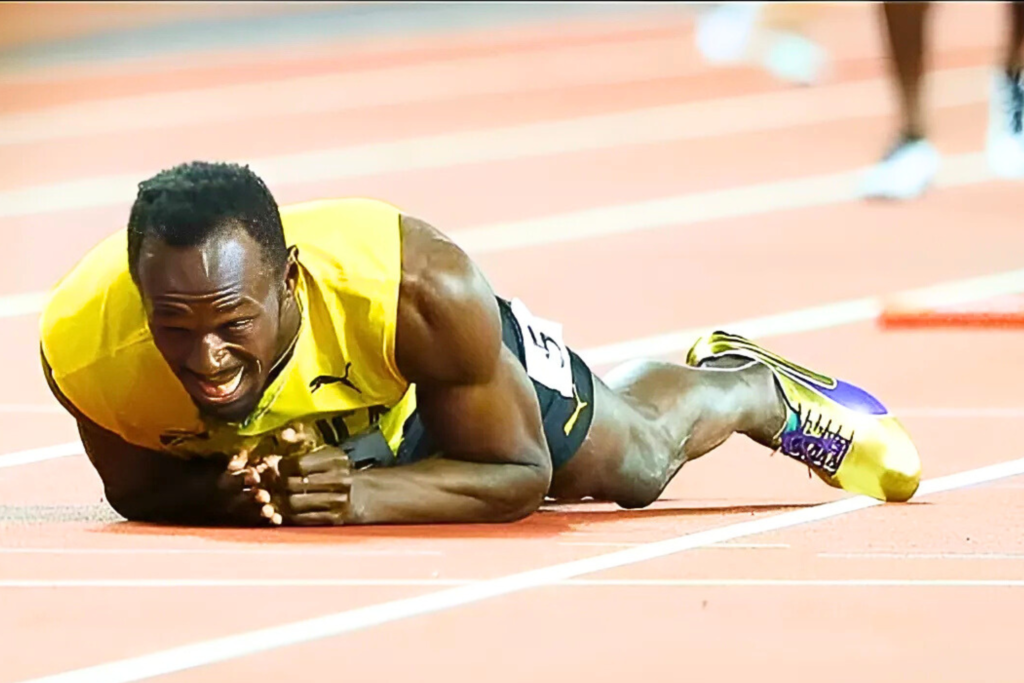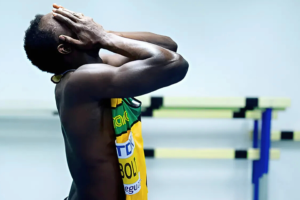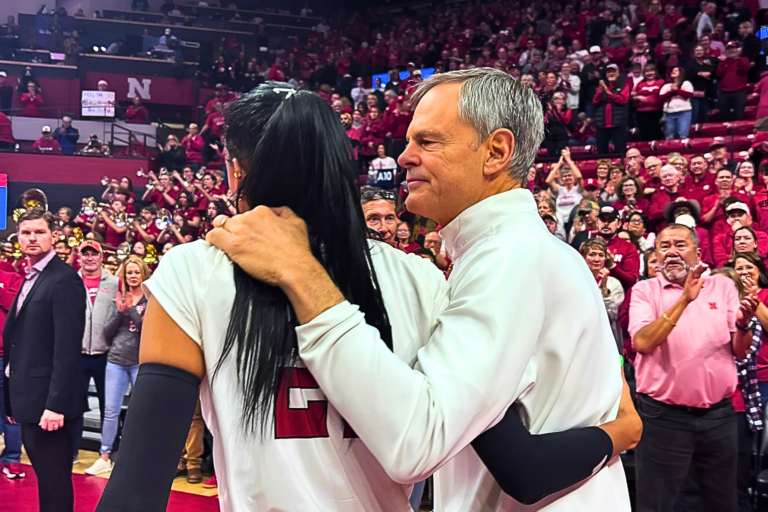
Usain Bolt Was Left Crying at Track and Field Career’s Major Event in 2001
Homesickness and stress—an overwhelming combination that can make even the strongest feel vulnerable. But it’s often these moments that shape future greatness. This was true for the unmatchable Usain Bolt, a man whose name has become synonymous with speed, having earned nine spectacular Olympic gold medals in his track and field career. However, before becoming the fastest man alive, Bolt faced his own set of struggles and lessons, beginning at William Knibb Memorial High School. He was the youngest athlete to make the Champion League or Champs podium, and from there, he was set to carve his path to legendary status. Yet, the journey was not without its hurdles.
As 2001 approached, a 15-year-old Usain Bolt found himself preparing for his next big test—the CARIFTA Games. CARIFTA, a prestigious junior-level competition, was a significant stepping stone for many Jamaican athletes. Bolt had already clocked a personal best of 48.28 seconds in the 400-meter race, earning a silver medal in the 200-meter event. This competition has served as a launching pad for many of Jamaica’s sprint legends, like Pauline Davis-Thompson in 1984 and Darrel Brown in 2002 and 2003. For Bolt, CARIFTA was about to become the gateway to the wider world of international competition—but not without personal challenges. It took him far away from home, to Barbados.
Usain Bolt’s Struggles: Tears in Barbados
Following his Champs triumph, Usain Bolt felt the excitement as he looked forward to his upcoming junior athletics competition in Barbados. It was his first time stepping off Jamaican soil, and at first, it felt like an adventure—an exotic holiday of sorts. He marveled at the new surroundings and the excitement of travel. But soon, reality kicked in. The thrill of exploring an unfamiliar land quickly gave way to a profound sense of homesickness. For the first time in his life, Bolt truly felt the weight of being away from everything familiar. He longed for his mother.
“It was all adventure. Flying to Barbados was the first time I had left Jamaica and, for a while, it felt like a holiday. Then I got homesick and started to miss Mom. One night, as I tried to sleep, I even began crying because I wanted to go home,” he later revealed in his autobiography, *Faster than Lightning*. The crying didn’t make him any less of an athlete; it made him human. At that event, he managed to grab two silver medals in the 200 and 400-meter races—a testament to his resilience amid a wave of emotions.
READ MORE~ Even Before Dad Pau Gasol, Vanessa Bryant Sends Heartfelt Message to Two-Year-Old Max
Overcoming Adversity in Hungary
After Barbados, Usain Bolt’s journey led him to the Youth World Championships in Debrecen, Hungary. It was there that the young Bolt faced yet another whirlwind of challenges. From the moment he landed in London en route to Hungary, everything seemed alien—the food, the weather, even the sparkling drinking water. It all added up to make a young, 14-year-old Bolt feel completely out of place.
The pressure of performing at an international level only made matters worse. Bolt didn’t have his best showing—getting knocked out in the 200-meter race wasn’t what people expected of a future legend. “Unlike Champs, my best wasn’t good enough and I ran pretty badly in the 400-meter and medley races,” Bolt remembered. But every failure is a lesson, and for Bolt, Hungary was a wake-up call, instilling in him a sense of maturity. Instead of feeling defeated, he set his focus on growth.
“I didn’t expect to land in Hungary and win anything. I was 14, and the World Youth Champs was an under-17 event,” Bolt wrote. Despite the odds, he gave his all, ultimately clocking a personal best of 21.73 in the 200-meter semi-final. His performance in Hungary was less about medals and more about learning to endure under pressure—a quality that would serve him well throughout his illustrious career.
Back to CARIFTA: Redemption and Records
The next year, in 2002, Usain Bolt returned to the CARIFTA Games—this time held in Nassau—and made history. He broke records in both the 200 and 400-meter races. This time, he wasn’t just showing potential; he was commanding attention, establishing himself as a force to be reckoned with. His performance wasn’t just a victory; it was a statement.

Life at Home: The Roots of a Champion
Back home in Jamaica, Bolt found peace and motivation in familiar surroundings—his mother, his father, and the lush landscape of the Cockpit Country, with its sugar cane fields and green thickets. After training, he would sit under the shade of the thick bushes, recharging both physically and mentally. Growing up with two siblings, Bolt was not always the diligent student his father wished he would be. Bolt’s tendency to sleep late often earned him a scolding from his dad, who feared his academic future was at stake. “It was whoop-a** time,” Bolt admitted.
Yet, amidst his father’s discipline, there was the soft nurturing of his mother. Despite her concerns about his studies, she understood her son’s passion and ensured he had the freedom to explore his dreams. When it came to racing, she was always his biggest supporter. Whether it was getting Bolt out of bed or calling a cab to make sure her child made it to class, she was the constant presence that made him feel invincible.
The Rise of Lightning Bolt
By 2002, Bolt was on his way to becoming the youngest male to win gold in the World Junior Championships. He recalled the excitement of hearing spectators cheer, “Lightning Bolt!” as he sprinted down the track. That moment made him realize the magnitude of his capabilities—that he could overcome any challenge thrown at him. The cheers from the crowd were more than just support; they were a validation of his extraordinary talent. They were a sign that his physical prowess, strategic thinking, and sheer determination had all come together to make him unstoppable.
Usain Bolt’s journey, from crying in Barbados to standing on the world’s most prestigious podiums, is a story of resilience, growth, and the ability to learn from failure. It serves as an inspiration not only for athletes but for anyone facing adversity. The journey was never a straight line—it was full of twists, turns, moments of doubt, and incredible triumphs. That’s what made Usain Bolt not just the fastest man in the world, but also one of the most inspiring figures in sports history.






